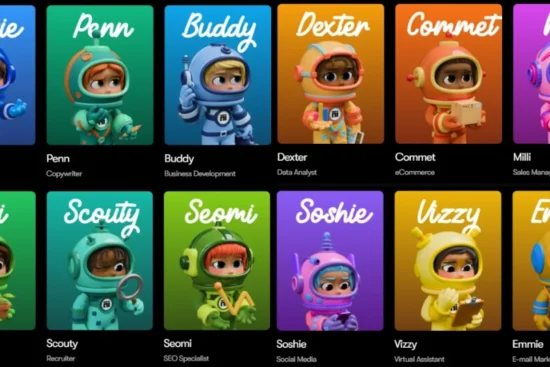
In this comprehensive blog, we delve into the exciting world of green tech innovations that are shaping the future of the tech industry. As technology continues to advance at a rapid pace, so does the need for sustainable practices and eco-friendly solutions. From renewable energy to eco-conscious manufacturing processes, the tech industry is undergoing a revolution to reduce its environmental impact. In this article, we explore the latest tech trends in 2023 that are driving sustainability, making our world greener and more environmentally friendly.
Sustainable Energy Solutions
One of the most significant trends in the tech industry is the adoption of sustainable energy solutions. Renewable energy sources such as solar, wind, and hydro are gaining popularity as the world shifts away from fossil fuels. Companies are investing in solar farms, wind turbines, and hydroelectric plants to power their operations sustainably.
Energy-Efficient Data Centers
Data centers are an integral part of the tech industry, but they consume massive amounts of energy. To address this issue, companies are optimizing their data centers to be more energy-efficient. Advanced cooling systems, virtualization, and AI-driven energy management are some of the technologies being used to reduce energy consumption in data centers.
Eco-Friendly Hardware
The production of electronic devices often involves harmful materials and processes. However, eco-conscious companies are now manufacturing hardware using sustainable materials and recycling old electronics to minimize electronic waste.
Circular Economy Initiatives
The tech industry is embracing the circular economy model, which focuses on reducing waste and maximizing the lifespan of products. Companies are designing devices that are easily repairable and upgradable, reducing electronic waste and promoting a more sustainable approach.
Internet of Things (IoT) for Environmental Monitoring
The Internet of Things (IoT) is being utilized to monitor and manage environmental factors. IoT sensors track air quality, water pollution, and energy consumption, providing valuable data to make informed decisions and improve sustainability efforts.
Artificial Intelligence for Energy Optimization
Artificial Intelligence (AI) plays a vital role in optimizing energy consumption. AI algorithms can analyze data from various sources to identify patterns and inefficiencies, enabling companies to reduce energy waste and carbon emissions.
Green Transportation Solutions
The tech industry is also revolutionizing transportation with green solutions. Electric vehicles (EVs), autonomous driving technologies, and ride-sharing platforms are contributing to reducing greenhouse gas emissions and promoting sustainable transportation options.
Eco-Friendly Packaging Innovations
The packaging industry has a significant environmental impact, but green tech innovations are changing that. Biodegradable packaging materials, sustainable packaging designs, and reduced packaging waste are becoming mainstream in the tech industry.
Blockchain for Sustainable Supply Chain
Blockchain technology is being employed to create transparent and sustainable supply chains. It enables companies to trace raw materials’ origins, ensuring ethical sourcing and reducing environmental impact.
Smart Grid Technologies
Smart grid technologies are transforming the way energy is distributed and managed. By integrating renewable energy sources and advanced energy storage systems, smart grids enhance the efficiency and reliability of energy distribution.
Final Words:
The green tech revolution is not only reshaping the tech industry but also paving the way for a sustainable future. Innovations in renewable energy, eco-friendly hardware, smart technologies, and sustainable practices are driving the industry towards a greener and more environmentally conscious path.
Commonly Asked Questions:
1. How is the tech industry contributing to sustainability?
The tech industry is contributing to sustainability through various means, such as adopting renewable energy, manufacturing eco-friendly hardware, implementing IoT for environmental monitoring, and promoting green transportation solutions.
2. What are some examples of sustainable energy solutions in the tech industry?
Examples of sustainable energy solutions in the tech industry include solar farms, wind turbines, hydroelectric plants, and energy-efficient data centers powered by renewable energy sources.
3. How does AI help in optimizing energy consumption?
AI algorithms analyze data from different sources to identify patterns and inefficiencies in energy consumption. By doing so, companies can make data-driven decisions to reduce energy waste and carbon emissions.
4. What is the circular economy model, and how is it applied in the tech industry?
The circular economy model focuses on reducing waste and maximizing the lifespan of products. In the tech industry, this means designing devices that are easily repairable and upgradable, promoting a more sustainable approach to electronics.
5. How is blockchain technology used to create sustainable supply chains?
Blockchain technology enables companies to trace the origins of raw materials, ensuring ethical sourcing and reducing the environmental impact of supply chains.












